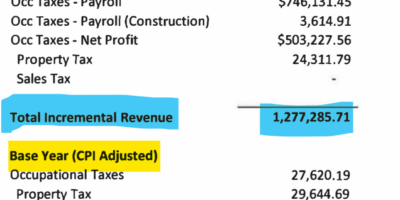By Danny Mayer
Fancy Farm, KY
It takes a worried man
To sing a worried song.
—Woody Guthrie
In my notebook, this line starred, maybe 2 pages into the notes covering my trip to Fancy Farm, Kentucky, to attend the state’s symbolic beginning to the political season. Part nineteenth century stump speechifying, part political family reunion, part local civic celebration day, and part picnic, Fancy Farm is really a political carnival, inflected with the usual particular Kentucky seasonings: dull suburban white jokes spoken in thick accents, barbecue, no cussin’, no alcohol. Plenty of religion, plenty of outlandish costumes.
I remember the scene quite well. Standing at the edge of the shade, facing an empty podium, leaning against a bamboo stick freshly sliced the day before from a friend in Southland who, when I informed him that I planned to use the bamboo at Fancy Farm to fight fascism, responded, “Right on….I’m glad to help.” A whirlwhind 24 hours later and standing next to me, fuzzy in the strange halflight of my prescription shades, Martin Mudd is singing along to the strong bluegrass band toiling away on the far side of the stage from us. “It takes a worried man,” Mudd continues along, “to sing a worried song.”
The whole moment was….quiet, the calm before showtime, a sort of queer subdued reflection on the events to come, maybe the only really honest one I saw all day and certainly the most professionally delivered, and Mudd was singing along like he knew. Maybe it was the barbecue we had both just eaten. Either way, I’m glad I starred it.
I came to this small town in southwestern Kentucky as both a participant/contributor to the socio-political spectacle that is Fancy Farm in the fiery bowels of summer, and as a journalist—an activist journalist—interested in covering the unique state-wide event that officially marks the annual opening to the year’s political electioneering mayhem.
Fancy Farm Kentucky, USA
Though reliably colorful, Kentucky politics doesn’t often command a national stage, a fact reflected in the traditionally scant amount of coverage afforded to Fancy Farm by outlets outside of the state. There are several reasons for this. On a national level the state’s elected politicians have been reliably conservative (first for Dixiecrat Democrats, currently for Regressive Republicans), which has made for a political culture that is, nationally-speaking, too predictably boring to cover. Things stay remarkably the same, change here happening, as Mark Twain (and Joe Sonka) has pointed out, generally twenty years after it’s happened anywhere else. And then, too, being situated in middle-America, at the crossroads of the north and the south and of the south and the midwest, Kentucky is geopolitically marginalized, located at the edge of all these regions and also far from big city media/culture centers (New York, LA, Chicago, Atlanta). What takes place here does not normally translate readily into identifiable bellweather statements about what “the south” or “the midwest” or “the mainstream” will do.
This year’s edition of Fancy Farm, however, the 130th such gathering, had come to assume a greater national importance. Among others, CSPAN was on hand to cover the event for the first time, Newsweek writer Ezra Klein reportedly flew in to report on it, and a variety of NPR stations swooped down for interviews and soundbites from both the politicians on the stage and we lay people grunting and sweating on the ground in the sun, participant spectators walking around with our signs and our literature and our endorsement t-shirts.
The increased coverage and importance placed on Fancy Farm owes itself to one single recent phenomenon: the rapid rise of the Tea Party as a political movement within the United States. Kentucky’s race to fill the soon-to-be-vacated seat of Jim Bunning, the state’s long-serving conservative fiscal hawk senator, features Republican candidate Rand Paul, son of Texas libertarian Republican congressman Ron Paul, running against the Democrat Jack Conway.
Taking many of the anti-government conservative libertarian positions that are the hallmark of his father, Rand Paul has both courted and received the support of Tea Partiers. Thus far, the courtship has paid dividends. In the state’s republican primaries, Paul’s outsider candidacy utterly horse-whipped the establishment Republican candidate (and current Secretary of State for Kentucky) Trey Grayson, who was endorsed by Kentucky Senator Mitch McConnell, by a margin of over 20 points. (Paul secured nearly 59% of the primary vote.)
National news outlets driving up to the sweltering western Kentucky farm metropolis of Fancy Farm (population 1700) last Saturday did not come here to cover Mike East, Republican candidate for Kentucky’s Second District in the state Senate, or to hear about the brand spanking new school opened up just beyond the homes out yonder past stage left here in Fancy Farm. No, they came here to cover one thing: the larger national story of the Tea Party’s political power.
This nationally-scaled story mainly posed a variation on the same general question and storyline. Could a Tea Party candidate with a political pedigree that commands instant national attention, running in a conservative state sympathetic to the right-inflected populism that the movement espouses, win a seat as a federal lawmaker? It was a real riches to riches story, Horatio Alger tailor fit for the new millennium. That was their story, anyway: document and gauge the power of a grassroots movement through the charismatic (or at least known and bankable) entity of Rand Paul.
Me, I had a slightly different set of questions to ask as I navigated my way through the Saint Jerome Catholic Church grounds, passing the putt-putt and soda-ring toss tents and entering the throng of Teabaggers, Young Democrats and camera-toting journalists, bedecked in a spray-painted white UFK t-shirt and carrying a large hand-painted “fascist scoreboard” folded around two eight-foot tall Kentucky Damn Proud cuts of bamboo, on the lookout for some Western Kentucky barbecue pork.
Fascism in the U.S.A.
Since the election of Barack Obama to the presidency, the term fascism has enjoyed a resurgence in popularity, predominantly used by commentators on the political right as a description for the policies of center/left Democrats (so-called progressives). As early as April 2009, Glenn Beck began using the F word in conjunction with Obama, telling his viewers that the president is no mere socialist, but that in actuality he is a fascist in socialist’s clothing. Rush Limbaugh followed suit several months later in August 2009, rebranding Obama the evil dark socialist as Obama the evil dark fascist. “We’ve gotta stop calling it socialism, folks,” Limbaugh told his Dittoheads, “cause socialism’s lost its bite.” Taking a slightly more conservative tack, one observer, Scott Lazarowitz, has even gone so far as to tag Obama as a “socialist fascist communist.” Better to cover all bases, I suppose.
Before I go on, I should make one thing clear. You can’t really be a socialist fascist communist. I’ll explain why below, but for those slow on the uptake, not hep to your history, being a fascist communist is sort of like being a dogcat.
As the writer Teramis observed in the online article “Socialism, Fascism and Obama,” the Right’s use of the term fascism to describe our non-Republican black president—as with its use of other descriptors of him like socialist and communist—is intended to operate as “derogatory labels that have come to represent That Which is Un-American, and Threatens Democracy.” This is not to say that Obama has not exhibited any fascist elements as president. Like his predecessor in office, he certainly has.
It is instead to point out that the Tea Party definition of fascism—as a highly regulated system of state laws and taxations on private business, and seemingly that action only—is not based in reality, or historical reality at least. It is also to point out that the intended effect of calling Obama a fascist or socialist or communist is to “out” Obama as un-American. These tag lines, fascist particularly, operate similarly to the “terrorist!” line much preferred by the same people several years ago, back in the early Aughts. Whether called terrorist or fascist, the claim’s basis in reality is subordinate to its chilling effect on emotional public perception.
“It is not necessary for something to actually be socialist or fascist (by any historical definition) to have these labels applied,” Teramis continues. “What is necessary is a threat to the status quo, and an action proposed or implemented that makes some people uncomfortable about what it portends. At this point, the bogeyman terms apply.”
The outcome of all this bogeymanism is some pretty wild—and if you know anything about fascism, hilarious and head-shaking—semantic gymnastics. One writer, Don Frederick, actually took time to point out that fascism, while bad, was actually partially redeemable when compared to socialism because “[t]he fascist at least has enough sense to recognize that some capitalism is needed to create the wealth he wishes to confiscate.” Fascism, for this writer, is bad, but not as bad as socialism—simply on the basis that at least it endorses and utilizes capitalism.
Frederick’s understanding of fascism is partly right, of course. As a specific economic belief system, fascism aims to merge the interests of the state and corporations, often in the name of efficiency. None other than Benito Mussolini, the fascist Italian dictator, noted that “[f]ascism should more properly be called corporatism because it is the merger of state and corporate power.”
In the U.S., it was this fealty to capitalism—the state’s interests merged with their own—that intrigued many of our nation’s wealthy industrialists, people like Henry Ford (developer of the capitalist production model we now call “Fordism”) and Prescott Bush (grandfather to Bush II), to back the Fuhrer right on up to the beginning of WWII. As an economic system, fascism was viewed by big businessmen in the U.S. such as Ford and Bush as a more efficient running of national governments. Fascism wasn’t over-regulation, it was the state scratching big business’s back in return for an obedient populace. Fascism was perceived as an antidote to the evil creep of communism and socialism.
But fascism doesn’t just operate economically. As a specific political belief system, it historically arises through a far-right populism extolling extreme nationalism, intolerance of democratic processes, and the use of intolerant and hateful rhetoric to scapegoat “outsider” minorities: immigrants, ethnic and religious minorities, labor unions, progressives, feminists, homosexuals and socialists. One only needs to think of Adolph Hitler’s fascist Third Reich to see how fascism mobilized the volk, the people. It was largely energized through militaristic and atavistic appeals to a “they” that were to be both feared and demonized.
Hitler rose to power promising a return to national greatness after the German loss of World War I, which had left the nation’s infrastructure destroyed and its economic self-sufficiency crippled under the historical weight of military-induced debt. Hitler based his vision of a strong German state arising from the ashes on a mythic German master race. He mobilized his power by scapegoating not only Jews, a religious minority in the state, but also academics not toeing the state line of German cultural power, gypsies (a state-less, and therefore perpetually immigrant, class), gays and labor unions. Only the name of Hitler’s political party, the Nationalist Socialist German Worker’s Party, had any connection to socialist or communist tendencies—and it was in name only. Far from being lefty-socialist, Hitler rose to power through a right-wing movement that embraced nationalism, capitalism and an enforced cultural homogeneity.
Of course, Hitler was not the only fascist dictator of the last century. One might also look at the populace that supported, say, Mussolini’s fascist Italian government, or that of Spain’s General Franco, or that of the several U.S. supported fascist regimes in South America. All emanated from the right. This doesn’t make the lefty socialists politically blameless, but in terms of fascism, it’s generally opposed to it.
If there is a fascist movement coalescing in the United States, its source is not emanating from left-wing communists. History suggests instead that fascism arises through right wing populist movements. In the U.S. today, the face of this populism—and the group most readily anointing liberal groups as fascists—is the Tea Party movement, which uses rhetoric that suggests they want to “take back our country” from the gay black and brown socialist immigrants who have unsettled the status quo and led the country to the brink of economic and military disaster.
In the next issue, part two will return to Fancy Farm and the anti-fascist group United Front Kentucky, a group with which the author affiliates.




Leave a Reply